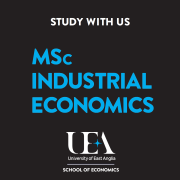This blog post draws on the presentation given by Professor Catherine Barnard (University of Cambridge) at the ESRC ‘UK in a Changing Europe’, ‘UK Regulation after Brexit Revisited’ event held at the British Academy in London on 27th October 2022.
(by Andreas Stephan) The UK’s new Prime Minister, Rishi Sunak, promised to put EU laws through the ‘shredder’, as part of the leadership contest campaign video he released in August when running against his predecessor, Liz Truss. The Retained EU Law (Revocation and reform) Bill (REUL) promises to impose a sunset clause on 2,400 or so pieces of retained EU law, which will cause them to cease applying in the UK unless ministers actively act to keep them. This includes all secondary law (regulations and directives) and related case law of the European Commission and Court of Justice of the European Union (CJEU), which plays an important role informing UK Competition Law (at least to the extent that it relates to EU case law delivered until 31 December 2020). This blog explains why the law could create significant uncertainty for the enforcement of UK competition law and what might be done about it.




 Posted by Andreas Stephan
Posted by Andreas Stephan 

